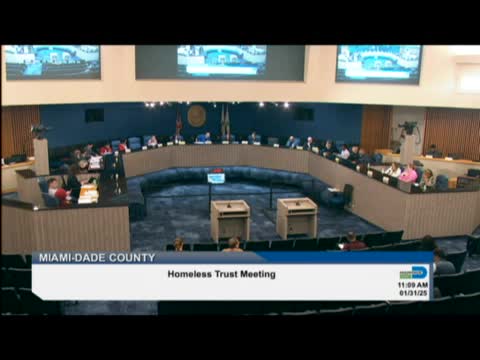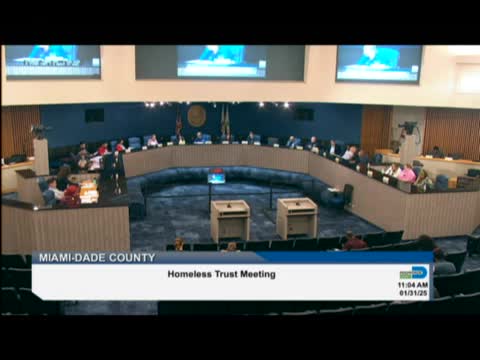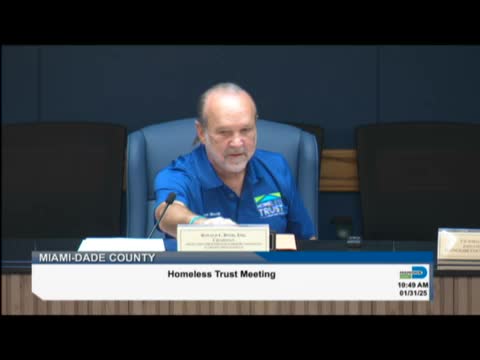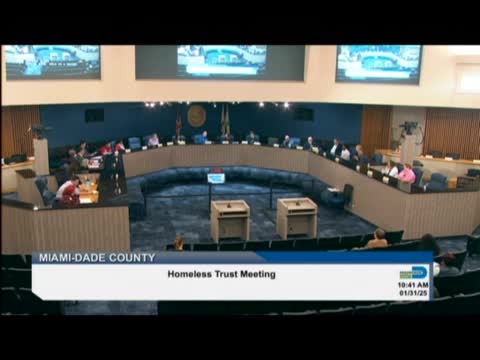Article not found
This article is no longer available. But don't worry—we've gathered other articles that discuss the same topic.

Trust advances homeless reporting tool and shelter expansions; webinars reached municipal police departments and 11 requested access

Trust updates: La Quinta closed; Wynwood North and Blue Village moving forward as CHROME retrofit delays slow capacity gains

Trust approves use of $5 million Bezos grant for rapid rehousing; board authorizes contracting with Chapman Partnership and seeks $1.5M state and federal match

